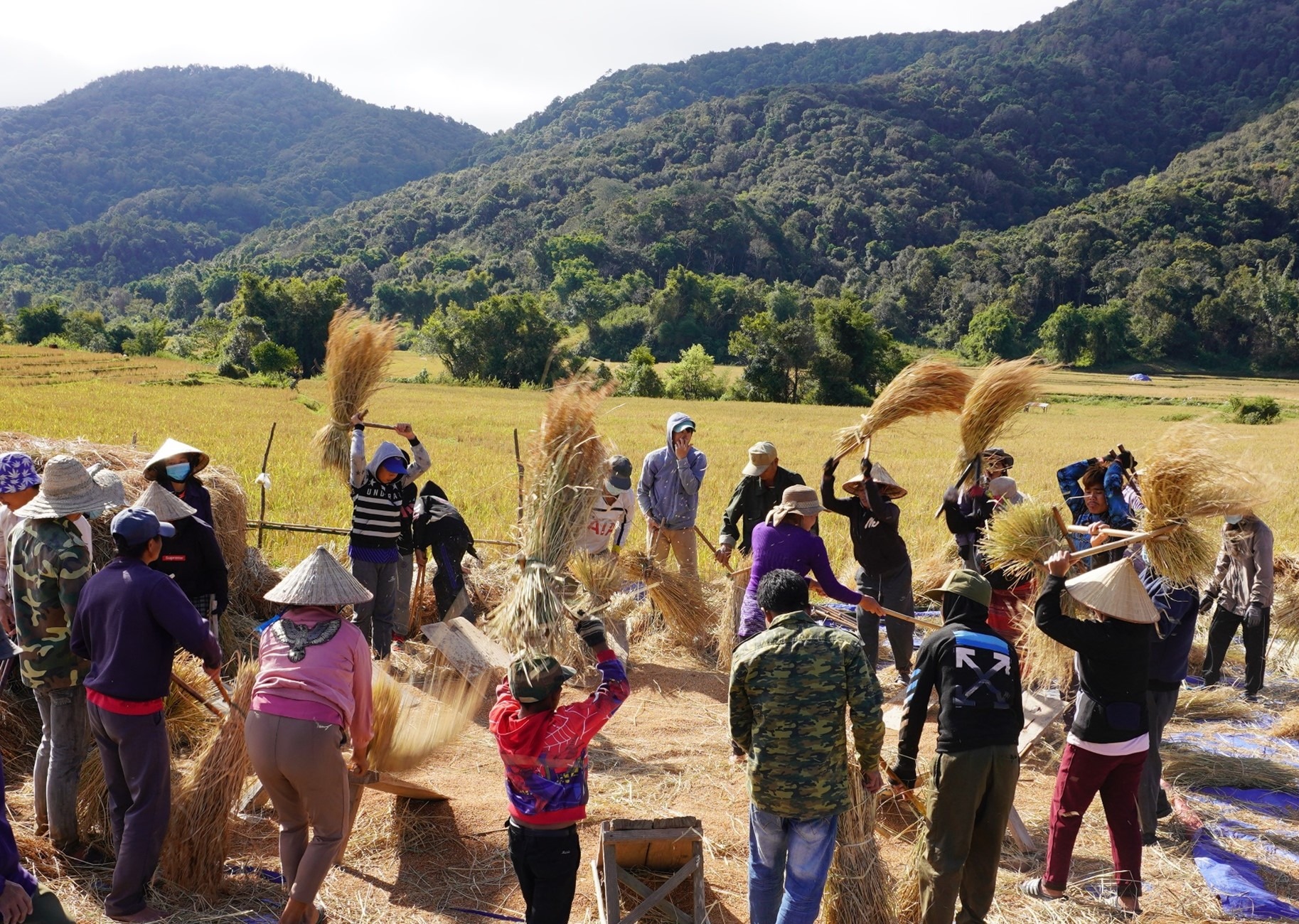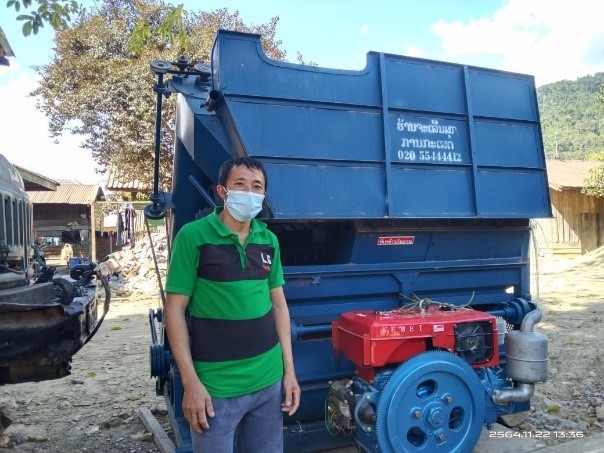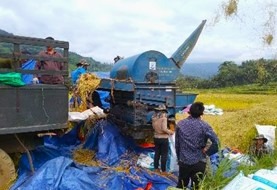
USAID Laos Microenterprise Provides Grants for Modern Agricultural Equipment
Rice is the main food crop in Laos’ Xiengkhouang Province. In Mork, a small district in Xiengkhouang, rice fields cover 1,119 hectares, and 90 percent of the population are farmers. However, six out of 10 rice farmers in the area still depend on traditional farming techniques, which require extensive time and labor. For example, threshing paddy by hand involves beating stalks against a wooden board until the paddy grains dislodge. A machine can thresh 250 bags per day; it takes 16 laborers to achieve the same volume.
In Mork, youth are increasingly leaving home in search of better education and jobs in cities like Phonsavanh and Vientiane. As a result, most farming families in Mork are comprised of the elderly, whose productivity diminishes with age. These families own on average one hectare of rice field and four laborers, at most. With only four laborers, it takes much longer for the family to harvest their paddy’s rice and thresh their produce, meaning rice stays longer in the fields and has an increased risk of growing mold. Typically, Mork farmers harvest between 60 to 100 bags of rice per season. By adopting modern rice threshing technology, Mork farmers can collectively thresh their crop quicker and decrease the manual effort required in the process.
“My rice field gets 90 bags [per year]. It takes a week to thresh, and I have to wait for my children to return from school to help. With the machine, it takes just one day and only my wife and I.”
— A rice farmer in mork
To improve access to modern threshing technology in Mork, Laos Microenterprise supported by USAID, implemented by ACDIVOCA, partnered with two businessmen already providing a small rice threshing service in Mork. The two partners, Mr. Xaifong Sorboualapha and Mr. Xorvang Yongtong, both received a grant from Laos Microenterprise to purchase two new rice threshing machines for a total of four. With this new equipment, Mr. Xaifong and Mr. Xorvang have upgraded their operations to provide local farmers with a quicker and more accessible rice threshing service. The machines can thresh 250 bags per day and service an additional 610 farmers.
In 2020, the private sector served 826 farmers in 17 villages in Mork. However, 550 farmers were still unable to access rice threshing technology. Through this grant program, halfway through the 2021 rice threshing season, Mr. Xaifong and Mr. Xorvang had already threshed $553,143 worth of rice, produced by 437 local farmers in 17 villages. They threshed about 1,330 metric tons, or 32,000 bags. Through this process, Mr. Xaifong and Mr. Xorvang also strengthened their business skills by making proper records and improving profit calculation and marketing decisions. One partner even provided a bridging loan to the other to purchase the machine.

“I am grateful for the project’s support. . .This support enable[s] local farmers [to] produce on season. I have a plan to acquire more threshing machines and build rice and maize warehouses as I buy more rice and maize from the local farmers.”
— Mr. Xaifong Sorboualapha, a Laos Microenterprise grantee
In 2022, Mr. Xaifong and Mr. Xorvang plan to expand their threshing network by 173 farmers to reach a total of 610 farmers. By working together, Laos Microenterprise and farming entrepreneurs in Mork are providing local farmers with better quality services by engaging them in modern agricultural practices. With this support, farmers not only save time and labor expenses, but also produce higher yields and rice quality. Some farmers have even been able to transition from subsistence farming to producing rice as a cash crop. Laos Microenterprise will continue to support rice farmers in the province by partnering with the private sector to demonstrate additional modern technologies, such as seedling transplanters, threshing, seed sorting, rice milling, and grading.

Learn more about Laos Microenterprise.





